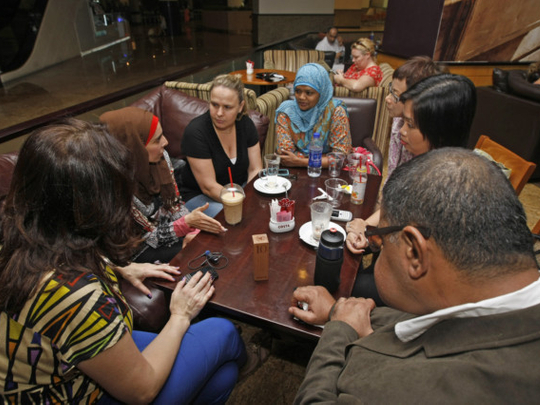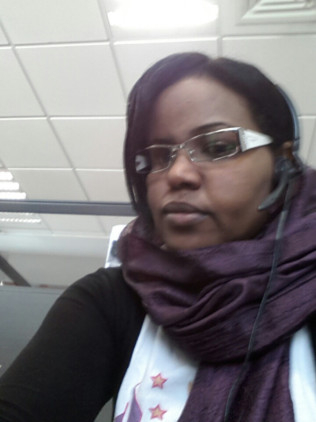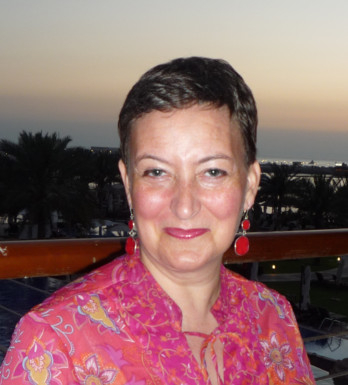
Dubai: Giovanni Geremia, 44, was diagnosed with cancer of the bladder in May. A South African marketing executive with a trading company in Dubai, he took it in his stride and went about his work as best as he could.
The illness meant he had to take time in between for treatment. But he made sure he took his laptop to the hospital and stayed out of work for less than 20 days.
Yet Geremia found himself out of work on June 26.
Like Geremia, there are hundreds who either lose their jobs, quit or have to take time off when cancer strikes.
But it’s never easy to get reinstated.
Many companies shy away from retaining or employing cancer survivors because they are perceived to be a liability.
A group of volunteers in Dubai, however, is determined to change that.
Egypitian Rania Amer, the brain behind the group Pure Hearts 4 Cancer, said: “There is an unmistakable struggle among cancer survivors to get back to work. That’s because society has a lot of misconceptions about cancer. We need to raise awareness. Many patients don’t even go for treatment because they are afraid to lose their jobs.”
Around 70 survivors have registered with Pure Hearts in the hope of finding employment. “We work closely with the survivors, hospitals and companies and provide a common platform for them. We’ve held two job fairs so far, where 20 per cent of the survivors got jobs. But we have a long way to go.”
Amer said what needs to be understood is that cancer survivors can work, though each case is different. “Some can work six days a week, 10 hours a day. Others have chronic symptoms which limit their abilities, so they can only take up light tasks or part-time jobs. But surely, there are enough opportunities for all.”
For the survivors, the struggle against cancer is often compounded by stigma.
Dinalyn Moore, 33-year-old Filipina in Dubai, was diagnosed with breast cancer at 32, six months after she got married. “It came as a shock because I was so young. When I was put on chemo, I began losing my long hair. I worked in a modelling company and felt everyone was staring at me. The job was also getting stressful as I was handling accounts. Soon, my confidence took a beating and I just had to stop. But now I am fine and am looking for an opening.”
Unlike other ailments, there’s a perceived sense of deadliness and inevitability about cancer which acts a stumbling block in embracing survivors. But as Geremia’s wife Jane said: “Cancer is not contagious. It can strike anyone at anytime and employers must be more understanding. My husband is mentally very adept and believes he is perfectly capable of working. All he is asking for is a fair chance.”
As if the battle against the disease were not enough, its high cost of treatment inflicts a double blow. “We have spent Dh80,000 so far and have only our savings to fall back on,” said Jane.
“The financial burden can cripple you,” said Sadiya Salim, a breast cancer survivor who got treated in her native India.
“I was diagnosed in 2005 and spent around Rs250,000 (Dh15,245) on my treatment back then. We don’t know how we managed to pull though as my husband had a meagre income here and we did not have any insurance cover.”
Fully recovered now, she sells beauty products freelance.
“But I am a commerce graduate and am looking for opportunities in accounts or administration.”
Amer said one of the biggest fears that employers have is that cancer survivors entail a bigger insurance spend.
“I keep clarifying to them that these are cancer survivors and they should get covered like anybody else. We know this from survivors who have been reinstated.”
“We need to look at cancer positively. Every family has a case and we cannot wish it away. Treatment can take time but it’s not a permanent problem,” said Hanadi El Imam of the four-member Pure Hearts team.
Physical limitations force many survivors to redefine their job profiles.
Chemo and after
Vivian Kung, a Dubai-based breast cancer survivor, said she would hibernate for four days every time she underwent chemo. “I was diagnosed in 2007 and I would feel very weak and couldn’t walk. I would just sleep,” she said.
So the fashion consultant from Hong Kong went part-time with her work. Looking for other suitable part-time openings now, she said: “Getting back to work is so important because it helps us to be positive and stay connected with the community.”
Munid Ahmad, a 46-year-old Iraqi in Dubai, said he was diagnosed with thyroid cancer in 2011. He said his condition didn’t allow him to continue as operations manager at a concrete company, as a result of which he felt obliged to leave. “But the company was very co-operative and allowed me to stay on their visa. I do not get a salary and have been managing with my savings. My health has its ups and downs and I am trying to find a suitable role for myself.”
According to Amer, a US study has established that it is 13 per cent more difficult for cancer survivors to land jobs in the US compared to others. “This is in spite of their labour laws. Here in the Arab world where we do not have any laws to protect cancer survivors, the struggle is that much more difficult.”














